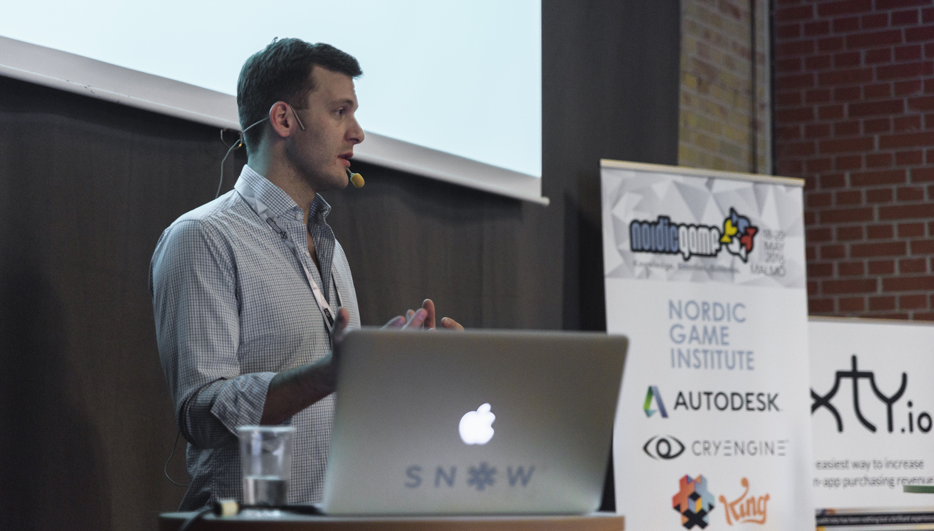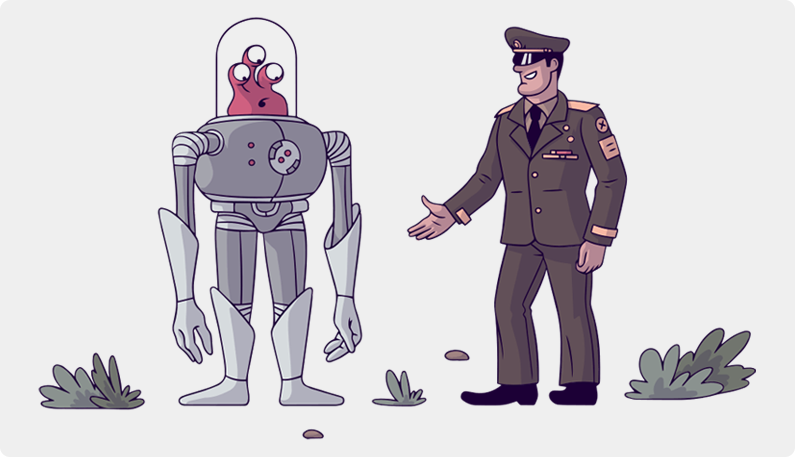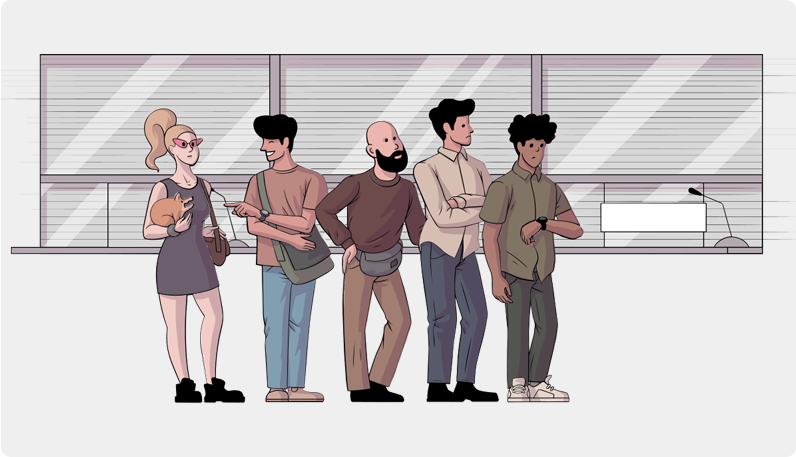5 Things They Don't Tell You Before Starting an Indie Studio

Sorry for the click bait title!
Well, sorry-not-sorry, because it got you this far - and hopefully now you’ll continue reading. In a brief departure from our world of backend technology, this post is a modified version of a presentation I made at the Nordic Games Conference several years ago - a reflection on my learnings and, dare I say, wisdom accumulated from leadership experience at indie studios Poppermost Productions and Hatrabbit Entertainment. I thought maybe, just maybe, some of my reflections will help other entrepreneurs at various stages of starting or running their own studios.
Background
My five points are obviously from my perspective of co-founder, CEO, and COO. But even if you’re not one of those, keep reading - this might offer some insight into what’s going on in the mind of your boss, colleague, or anyone else you know trying to brave the ups and downs of the game industry!
Why listen to me? There’s clearly no shortage of people claiming they’ve bottled the secret to success, but I’m here to share my honest take on the ups and downs as I experienced them. So perhaps you’d like a little background on what my experience actually is...
In 2012 I started Poppermost Productions with two co-founders and was CEO for our entire 7 year journey. Over the life of Poppermost, we grew from 3 founders to a team of 13 at our largest, all based in Stockholm, Sweden. The company was formed around the development of SNOW, a free-to-play, open world, winter sports game. This meant that there was never a question of ‘what to make’ but instead ‘how to make it’. We (partially) answered that question by raising over $1.5MM from angel investors and venture capitalists to add to the nearly $1.5MM we made in revenue from selling the game as early access on PC and PlayStation 4. Even though we saw some degree of success, in the end SNOW wasn’t a sustainable game… meaning I’ve gone through the rougher side of seeing a studio all-but close down.
After Poppermost I was COO at Hatrabbit Entertainment, where I worked closely with the co-founders to finance and grow the studio. Even though we had an incredibly talented team and some exciting projects in the works, we ended up selling the company to King pretty early on. Regardless, my 13 months at Hatrabbit was both exciting and extremely valuable as I got to experience running a totally different indie studio in a completely different position (as an executive but not a CEO or founder) - and this time with a successful and happy ending!
So, without further ado… my ‘5 Things They Don’t Tell You Before Starting an Indie Studio’...

1. Co-Founders
Co-founders are very important. In the startup world it is recommended to have at least one co-founder, if not two. Having co-founders has been shown to help when raising money, not to mention the benefit of having people aligned with your goals who you can rely on emotionally and practically. Your co-founders should be more than a couple of friends who share the same dream as you. They will be your support when you’ve burnt out, and help you through making the hardest decisions. Together you will - intentionally or not - dictate your company culture.My two takeaways regarding co-founders:
Communication
Communication is critical among co-founders. From the start, you need to assume that you’ll be working together for the next 3, 5, maybe 10 years and therefore need to constantly make sure your goals are aligned. Needs and goals naturally change over time, so it’s good to get in the habit of solid communication from the get-go..In short, talk before you start, as you start, after you start… just talk!
Paperwork
Make sure you have formal agreements between you and your co-founders. While it might feel unnecessary or even uncomfortable to have legal-esque discussions with your co-founders in early stages, it is extremely important. The most common agreement is a Shareholders’ Agreement which lays out the structure for what rights the shareholders of the company have in various circumstances. Most importantly, the Shareholders’ Agreement outlines what happens if a founder does something to hurt the company (intentionally or unintentionally), or leaves the company at an early stage.
Again, this might initially seem unnecessary amidst the excitement of starting a company together - but you never know what’s around the corner. Everyone needs to protect the company, and the Shareholders’ Agreement does just that. Even though it’s an unpleasant thought, try to imagine yourself in a situation where you no longer like or trust your co-founders and this document is all that remains to protect what you’ve built. And remember, this is an agreement between all shareholders for when things go wrong and no one can agree on a course of action, but it’s always possible to do things differently if there is unanimous consent.

2. Financing
Just as there are many ways to skin a cat, there are many ways to finance your company and game development. No matter what route you take, you will at some point experience ‘grass is greener’ syndrome and figure another studio who financed themselves differently has it easy - most likely, they don’t! Each of the below paths has pros and cons, so pick one (or a combo!) and try to stick with your decision.
Self-Funding
PRO: You’re your own boss. You work on your own schedule and have full control and ownership over everything.
CON: Unless you’ve got very deep pockets, you'll have finite resources that will eventually confine your vision.
Crowdfunding
PRO: Crowdfunding is soft money with no strings attached, allowing you to keep full ownership of your company. A successful campaign can be a huge PR boost and builds a community around your game.
CON: Crowdfunding campaigns are a full time job and all your backers will need rewards fulfilled and expectations met. They might not own part of your company, but they will want to be heard and will expect some degree of responsiveness in turn for their early belief in your product.
VC / Angel Investment
PRO: Smart money that often comes with guidance and support. Investors are usually very well connected and can open up doors to future investors.
CON: These people are investing their own money or someone else’s money into your company with the hope that you will be hugely successful. If your growth is not as large as planned, you should be prepared to deal with the sting of the moment when investors become less help and responsive because they see their investment as a write-off. Believe me, it can hurt!
Publishing Deal
PRO: Publishers shoulder most of the risk and provide support with everything you might dread (QA, marketing, publishing, etc) so you can focus on making a great game. If you can, you’ll work a margin into your development cost, giving your company some padding if things don’t go as planned.
CON: Depending on the deal, you might lose ownership of your game IP or not see much revenue until after the publisher has earned back everything they’ve spent. Publishers may also have the right to pull the plug on your project whenever they want, leaving you high and dry.
Ultimately, the most important element when making a decision regarding financing is to know as much as possible about where the money is coming from and are realistic about your costs and promises.

3. Team Size
Assuming you are not a solo developer, you will eventually need to hire employees to build your game. As a CEO, hiring and managing people will become part of your day-to-day life whether you like it or not. Hiring the right people is not a simple task, so extending an offer to someone to join your team should be done very carefully. There is no perfect hiring process, and something I continue to struggle with! But once you do start hiring, it’s good to understand how your company will change as your team grows. From my experience, here’s how different team sizes will affect daily life at work:
1-3 People
Smooth sailing! You can work autonomously without much structure since information flows freely. A simple Trello board and Slack channel make it simple to know what everyone is up to at all times.
4-8 People
Some structure is needed. Information still flows and employee’s personal needs won’t take up too much time. Maybe at this point you’ve just gotten an office - make sure it’s a clean, comfortable space to work in.
8-12 People
Things are getting serious so internal structure is a must. Those in leadership positions need to own tasks and clearly delegate. It’s inevitable that as CEO, you’ll spend more time attending to important employee needs, and also the mundane tasks of stocking the office with toilet paper, coffee and other miscellany.
12+ People
You’re over the hump now as each new employee is a smaller percentage of new blood in the company. If you haven’t invested in proper structure and culture, cracks will begin to show and you might lose talent because of it. Perhaps this is the time to offload some of your HR and people management to a contractor, advisor, colleague, or co-founder.
Remember: 1 in every 10 people you hire will be a personality ‘wild card’ and will cause some type of internal conflict. It will be your job to spot this as early as possible and act accordingly. This doesn’t mean the wild card is a bad hire, it just means that the culture of the company might have to adjust a little bit - and hopefully for the better!

4. Your Role
Oddly enough, I don’t think the CEO needs to be particularly talented in many elements of game development, either on the artistic or technical side. Instead, a qualified CEO is one who can listen, understand, and process information to make a decision. Assuming you’re working alongside co-founders, advisors and employees, you’ll have to be constantly absorbing information and opinions and have the confidence to choose a course of action - and take responsibility if your choice was wrong. You also need to be prepared to get comfortable with aspects of running a business that are less fun and totally out of your comfort zone. Here are roles that I’ve filled as CEO of Poppermost and COO of Hatrabbit:
- Leader - make hard decisions, take responsibility, set the standard
- Legal - understand how contracts are formatted and get good at reading them
- Hiring - manage hiring, interview candidates, draft employment contracts, get employee insurance
- Finances - build a budget and forecast model, find a friendly accountant you can trust to keep you up to speed
- Business Development - stay on top of emails with first party contacts, outsourcing, and possible business opportunities, and attend local and international industry events
- Spokesperson - get used to speaking in public, pitching, and making presentations - you can’t really avoid it as CEO
- Product - try to share this responsibility with someone else so you can balance short term reality with long term goals - they won’t always align!
- Office - find a reasonable office space, stock it with furniture and essentials, keep it clean (hire a cleaning service if you can afford it!) and set up insurance
- Good Cop - be everyone’s friend so they trust you and can be honest and open with you
- Bad Cop - be the person who turns down deals, cancels projects, and decides who gets laid-off
- QA - because no one else has time to test the game
- Marketing - manage your game’s branding, social media accounts, and PR relationships
While this might seem like a lot, you usually won’t be dealing with all of this at once. Successful time blocking is essential so your weeks have structure and you’re not overwhelmed.

5. Path to Success
We’ve all seen this motivational graphic before. Perhaps not so motivational… more a rude reality check! No matter what everyone tells you, your path to success will be unclear and nothing you can predict, imagine, or plan for. What you think will work probably won’t. What people tell you won’t work, will work - but in ways no one imagined. That off-chance conversation you have with a friend of your aunt will be a pivotal moment. Unfortunately, the only way to prepare is to accept the inevitable, be patient, stay optimistic, and take opportunities as they present themselves.
In Conclusion
Everything I’ve mentioned in this post is from my personal experiences running Poppermost for seven years and Hatrabbit for 13 months. Obviously there’s a lot more to building a business, but these are just my top five takeaways that could be useful to future founders.
And hopefully this doesn’t read as a cautionary tale against starting your own company - building something from the ground up is such an exciting journey! It’s jumping off a cliff and assembling the airplane on the way down. Doesn’t that sound like fun?